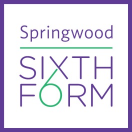Spanish
|
Sam " It really helps to improve communication skills and I enjoyed the cultural aspects of the course.” Emma " It was really interesting, The topics are varied and I learned a lot about French culture as well as language.” |
|---|
The A-level course encourages you to use your speaking, listening, reading and writing skills to learn about issues affecting the world today. You will, of course, be looking at them through the medium of German/French/Spanish and considering particularly how they affect German/French/Spanish speaking countries. Topics covered will include:
German: family, youth culture, media, festivals & traditions, multiculturalism, the German reunification, art, Berlin and politics. German use the AQA specification.
French: family, media, education & the world of work, festivals & traditions, immigration, multiculturalism, the French Occupation and Resistance. French use the Edexcel specification.
Spanish: family, tourism, the world of work, music, media, festivals & traditions, multiculturalism, immigration, the Spanish Civil War and the Franco dictatorship
All languages also study a novel/play and a film in the foreign language.
Learning Strategies: A mixture of teaching and learning methods is used e.g. teacher presentation and explanation, group discussion, paired work and individual study. Articles from the press, current audio recordings and podcasts are used to provide extra up-to-date material. As far as possible, lessons are conducted in German/French/Spanish, although grammar explanations are given in English. We have French, German and Spanish assistants for regular conversation practice.
Entry Requirement
A minimum of grade 4 in Maths and English Lang plus at least 3 other GCSEs at grade 5
Subject Specific Requirements
At least a grade 6 in the language you are going to study
Assessment
Paper 1: Listening, Reading and Writing: Written Paper, 1 hour 50 minutes – 40% of total marks. This includes listening and responding, reading and responding and a translation into English.
Paper 2: Writing: Written Paper, between 2 hours and 2 hours 45 minutes – 30% of marks. This includes translation into the target language, literary extended response to texts and written extended response to works.
Paper 3: Speaking: Oral exam of approximately 20 minutes, – 30% of marks. This includes discussion of a studied topic and presentation and discussion of a researched topic. The research project can be chosen from any topic or theme.
IRP :-
Choose a topic and do research. This is presented to the examiner in speaking exam.
Literary texts / films :-
French - La Haine and Le Gone du Chaaba
German - Der Vorleser and Almanya
Spanish—Como Agua Para Chocolate and Volver
Spanish - Vovler and Como agua para chocolate
Future Applications
The study of a language enables students to develop and build on the skills acquired at GCSE; enhances employment prospects; facilitates foreign travel and provides an insight into another culture and society. Knowledge of a foreign language will allow you to compete effectively in the global economy, broaden your horizons and increase your appreciation of other
cultures.
Alumni
Amy, James and Georgia - MFL - at University in London, York and Nottingham
Elena - Masters in International studies - in Cambridge. Fiona — now running her own translation business. Rebecca - International Business in Paris, now living in France
